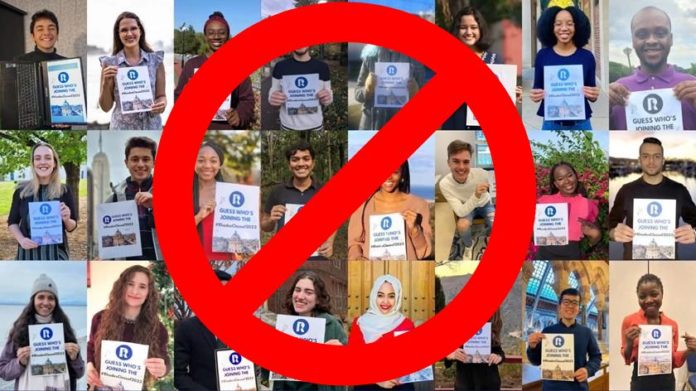
On Nov. 9, I drove to Halifax to undergo the final selection stages for the Rhodes Scholarship.
The scholarship offers fully-funded postgraduate study at the University of Oxford in England.
The selection process is rigorous: the application requires an extensive CV, a detailed academic statement, seven letters of endorsement and a personal essay addressing moral force of character, instincts to lead, protection of the weak and energy to use one’s talents to the full. Candidates had to explain “humanity’s greatest need.”
The evening of Nov. 11, there was an elegant banquet lit by bright hotel lights. From the banquet hall, we could see the sparkling Halifax harbour. The selection committee and candidates conversed freely.
I study neuroscience at the University of New Brunswick.
I think “humanity’s greatest need” is to validate norms that differ from our own. I was surprised that the weekend focused on local norms and perspectives. I wanted to interview other candidates to see how they felt.
After meeting them, I felt incredibly hopeful. I was keen to see how the finalists’ futures unfold.
The next day, the candidates were interviewed for 50 minutes.
By evening, the verdict passed.
The winners received press and recognition. But the rest?
***
For Francesca Sivilotti, a Rhodes finalist from Dalhousie University, “humanity’s greatest need” is to get better at disagreeing.
“I see how divided and polarized we are on so many controversial issues. We are totally unwilling to engage with people with whom we disagree. That’s really dangerous,” said Sivilotti. “If we cannot coherently talk about our disagreements we’re never going to resolve anything.”
Sivilotti is majoring in law, justice and society, with minors in psychology and economics. At Oxford, she would have taken two law-related masters programs.
She plans to begin law school next year. She said her Rhodes experience has solidified her ambitions.
“If I’m not frequently encountering some form of rejection then I’m not aiming high enough,” said Sivilotti. “This experience was really affirming because [I saw] not getting this opportunity as an indicator that I set my sights high enough.”
During her Rhodes interview, Sivilotti was calm and focused. She was surprised to be asked a series of questions about policy-making.
“I was expecting more philosophical questions about the kind of person I am, how I think about ethical problems, the kind of impact that I want to have,” said Sivilotti.
She speaks warmly of the banquet. She appreciated meeting the committee and was struck by how intelligent and kind the candidates were.
“I walked away with a sense of ‘now that I know these people, I can be happy for them when they get it,’” said Sivilotti.
***
Ethan Draper studies applied forensic psychology at St. Francis Xavier University. He believes empathy is humanity’s greatest need.
“[Empathy] is the realization that there are a lot of problems that can be solved when we work together and actually recognize that just because [a problem] doesn’t affect you doesn’t mean that it’s not valuable to solve,” said Draper.
At Oxford, he would have taken a doctor of philosophy in psychiatry research. He viewed Rhodes as an opportunity to network with people from different backgrounds to discuss policy development. Draper aspires to understand the neurobiology of housing instability and wield such research to advance society.
For his interview, Draper looked forward to being stretched into broadening his perspectives. He enjoyed some challenging questions but was surprised that his lived experiences were not probed at all.
“I’m trans and I talked about my gender transition [in my personal statement] and how that informed my work and my passion for housing instability,” said Draper. “I do feel like not having as much of an opportunity to further elaborate on that was missing a key portion of my identity.”
Draper is considering pursuing a masters in neuroscience at McGill University.
“I don’t feel regret about my application. I do feel that it was a good, reflective process for me,” said Draper.
***
Aline Maybank was a Rhodes finalist at Dalhousie University studying environmental health. She found it easy to discern humanity’s greatest need.
“It’s pretty easy – climate change action. Or else we’re not going to survive,” said Maybank.
At Oxford, Maybank sought a masters in environmental change and management and a master of business administration. She knew about the Rhodes Scholarship her whole life but hadn’t considered applying until some of her mentors encouraged it.
Maybank shares that her upbringing in British Columbia familiarized her with forest fires and the respiratory issues that ensued, fuelling her interest in climate change medicine and Canadian health care.
Maybank’s application rang with climate change and health-care activism. She expected her
interview to include questions on these topics.
“All my questions were law or policy-related,” said Maybank. “I don’t think I got a chance to show who I really am.”
